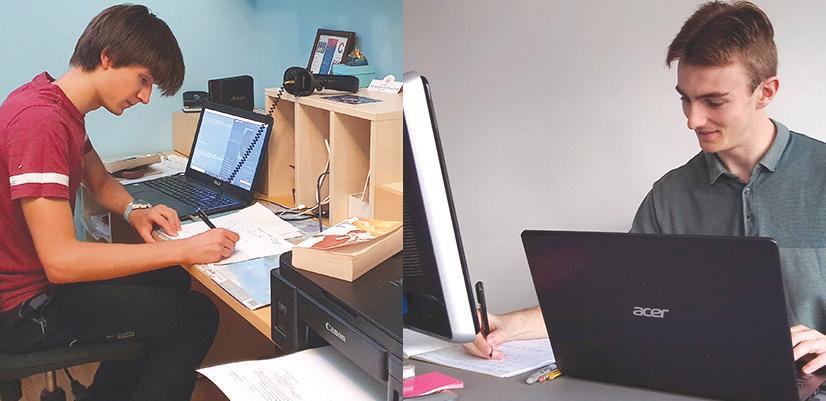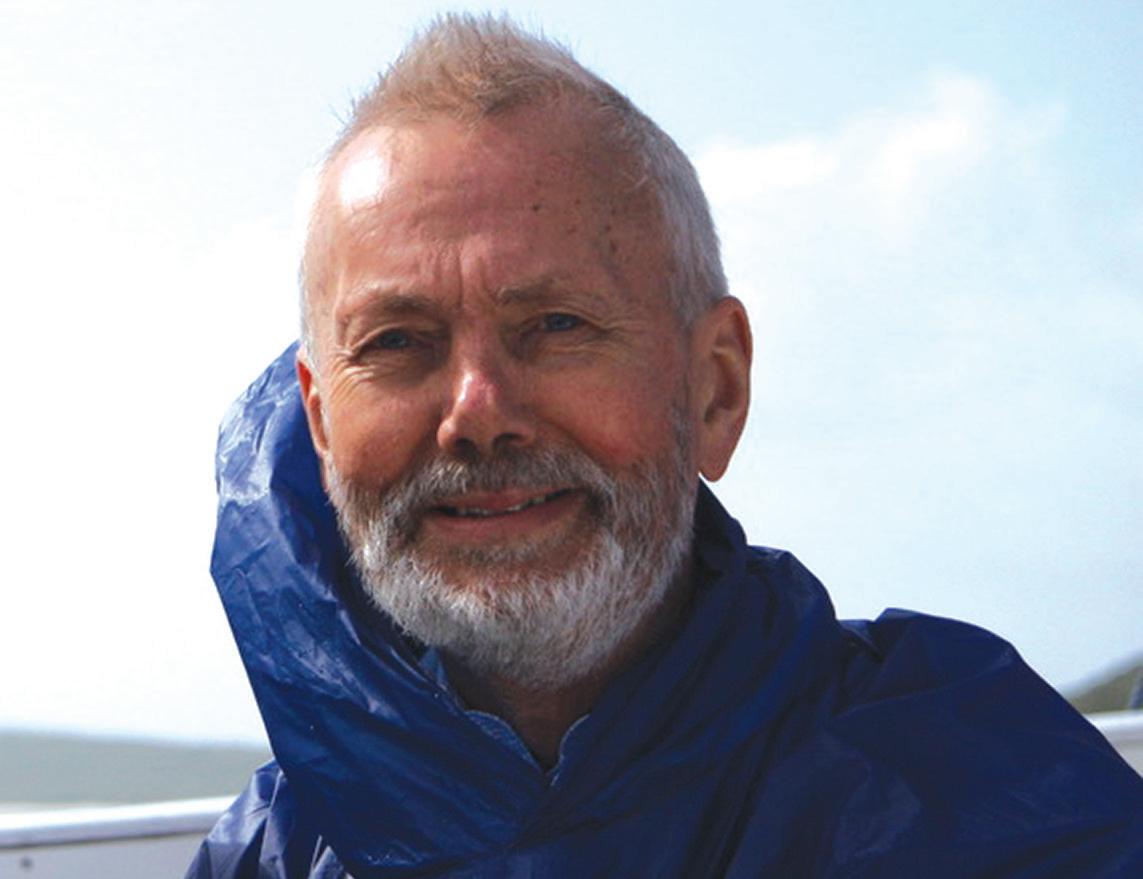
3 minute read
ChemSoc returns
The University of Cambridge Chemical Society tradition of hosting term-time talks and events for the chemistry community was rudely disrupted, like so many other Cambridge traditions, by the coronavirus.
All talks for Easter term were cancelled as students returned to their homes to complete the term via online supervisions and lectures. The officers were scattered around the globe: newly elected President Gareth Hart was in Surrey while Secretary Richard Danylyuk went home to the Ukraine, only returning to college at Catz at the start of Michaelmas term.
The purpose of the Chemical Society, or ChemSoc as it is popularly known, is to bring together University members who share a common interest in Chemistry. “We normally host four talks a term in the Pfizer or Wolfson Lecture Theatres, and everyone is welcome,” says Gareth, who is in his third year at Magdalene and is now specialising in Chemistry.
“It’s really about Richard Danylyuk the fact that we all enjoy the subject and that’s why we want to talk about it,” says second-year student Richard. Since starting the Natural Sciences tripos, Richard has always known he wanted to study chemistry, but he hasn’t settled into a particular field. One of the things he enjoys about being in ChemSoc is meeting chemists at different stages of their studies. “It’s not just undergrads, but also postgrads and postdocs– it’s good to meet people in different year groups that you can ask questions and compare experiences with,” he says.
Gareth is confident that ChemSoc will be able to use the restrictions caused by Covid-19 to forge a new direction and possibly reach even larger audiences through the introduction of Webinars or perhaps Q & A sessions with key speakers, eventually making the transition back to live lectures when safe.
ChemSoc has also been active in organising social events, which offer another opportunity to meet fellow students with similar interests. Pub quizzes, picnics, film nights and socials have all been regular features in the past, and this is something the committee would love to continue. “We’re hoping to set up some social events this term if we can do it safely,” says Gareth, but we’ll start with outdoors events where it’s easier to maintain social distancing.”
The new committee want to create a greater engagement between ChemSoc and the Department. “At the moment they’re very different entities, and we want to emphasize that we are all part of a broader chemistry community,” says Gareth. “We’d also like to engage with alumni and hear more about their experiences.”
With no paid membership, ChemSoc is also seeking alternative ways of funding. They receive some Department funding, and are sponsored by TPP, InfoActive, Benevolent AI and Teach First. “But we’d also like to develop relationships with the chemical industry,” says Gareth. “For example, a company could sponsor an industrystyle event in which a speaker talks about what working in that industry is like and compares it to academia. This Gareth Hart is what a lot of students would like to hear more about, and it would also give publicity to the company.”
ChemSoc is also increasing its social media presence and regularly posts on its Facebook and Twitter accounts. “We released a post on the synthetic route of remdesivir, and we reached several thousand people with that post.” ChemSoc were also fortunate to have alumnus Richard Mackman, who helped develop remdesivir at Gilead Sciences, as one of their speakers in November. (See related article page 20).
Other committee officers include Vice President Domantas Kuryla (Christ’s), Logistics Officers Ryan Kang (Trinity) and Tristan Spreng (Trinity), Publicity Officers Benji Rowlands (St John’s) and Juan DF Pottecher (St Catharine’s), Junior Treasurer Margaret Fomenko (Corpus Christi) and Webmaster Xueyan Huang (Peterhouse).
www.chemsoc.ch.cam.ac.uk/ W www.facebook.com/camchemsoc/ https://twitter.com/CChemsoc










